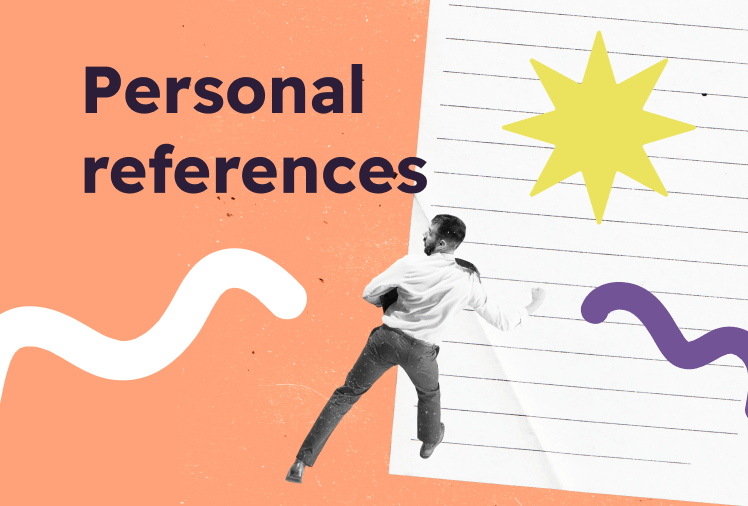Personal references are people who know you personally and can speak to your character, work ethic, and other personal qualities that may not be apparent in your work experience or education. Personal references are not typically included on a resume, but may be requested by an employer during the job application process.
Personal references can be friends, family members, neighbors, or anyone else who knows you well and can speak to your personal qualities and characteristics. It is important to choose personal references who can speak positively about you and your abilities.

Unlike professional references, personal references are not necessarily related to your work experience or education. However, they can still provide valuable information to an employer about your character, work ethic, and other qualities that may be relevant to the job.
Difference between personal and professional reference
A professional reference is a person who can speak to your work experience, skills, and qualifications for a job. Professional references are typically coworkers, supervisors, or colleagues who have worked with you directly and can provide specific examples of your strengths and accomplishments. It is common to include at least three professional references on a resume, and it is typically recommended to include a mix of supervisors, coworkers, and colleagues.
A personal reference is a person who knows you personally and can speak to your character, work ethic, and other personal qualities that may not be apparent in your work experience or education. Personal references are not typically included on a resume, but may be requested by an employer during the job application process. Personal references can be friends, family members, neighbors, or anyone else who knows you well and can speak to your personal qualities and characteristics.
In general, professional references are more focused on your work experience and qualifications, while personal references are more focused on your personal characteristics and qualities. It is important to choose both types of references carefully and to provide them with the necessary information and context to give a thorough and accurate recommendation.
When do you need personal references on your resume?
It is not typically necessary to list personal references on a resume. A resume is a document that summarizes your work experience, education, and skills, and is typically used to apply for jobs. Personal references are not typically relevant to your work experience or education, and are not generally included on a resume.
However, it is not uncommon for an employer to request personal references as part of the job application process. If this is the case, you will typically be asked to provide the names and contact information for several personal references. It is a good idea to choose personal references who can speak to your character, work ethic, and other personal qualities, and to ask for their permission before including them as a reference.
An employer may request personal references as part of their hiring process, either in addition to or instead of professional references.
Personal references can provide valuable information to an employer about your personality, work style, and other qualities that may be relevant to the job.
How to ask for a personal reference?
If you need to ask someone to be a personal reference, it is important to be respectful and professional. Here are some steps you can follow when asking for a personal reference:
- Choose someone who knows you well and can speak positively about your character, work ethic, and other personal qualities. It is typically best to ask someone who has known you for a while and has had the opportunity to observe your work and personal habits.
- Consider the person’s availability and willingness to serve as a reference. It is important to choose someone who is likely to have the time and willingness to provide a positive and thorough reference.
- Ask for permission. It is important to ask the person if they are willing and able to serve as a personal reference before including them on your list. This will give them the opportunity to decline if they are not comfortable serving as a reference or do not feel qualified to speak to your abilities.
- Provide necessary information. When asking for a personal reference, it is a good idea to provide the person with the necessary information, such as the name and contact information of the person requesting the reference, the job you are applying for, and any specific questions or topics they may be asked about.
- Thank the person for considering your request. Whether or not the person agrees to serve as a reference, it is important to thank them for considering your request and to express your appreciation for their time and consideration.
Here is an example of how you might ask someone to be a personal reference:
Hi [Name],
I hope this email finds you well. I am currently in the process of applying for a new job, and the employer has requested personal references as part of their hiring process. I was wondering if you would be willing and able to serve as a personal reference for me.
I understand that serving as a reference is a significant commitment, and I want to make sure you are comfortable and willing to do so. If you are, I would be grateful for your support. I can provide you with more information about the job and any specific questions or topics you may be asked about.
Thank you for considering my request. I appreciate your time and consideration.
Sincerely,
[Your name]